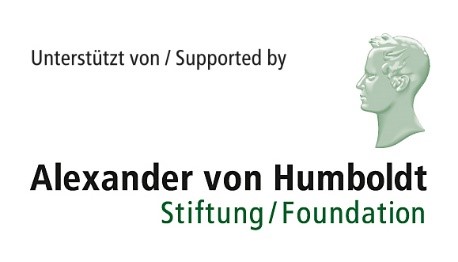Compliance as a mean for the protection of the financial interests of the European Union
DOI:
https://doi.org/10.46941/2025.se1.9Keywords:
protection of the financial interests of the European Union, EU budget, risk assessment, whistleblowing, internal reporting, external reporting, public disclosure.Abstract
The protection of the EU budget and its financial interests is an important task of the Member States as well as the institutions, bodies and agencies of the Union. This objective can be reached by several means: by preventing criminal offences affecting the financial interests of the Union, by monitoring the regular implementation of the EU budget, by strengthening operational cooperation between national and EU authorities and by sanctioning of these criminal offences and illegal activities. However, in order to ensure an effective protection of the financial interests, the European Union has to primarily focus on the preventive measures, since it is always better to detect and prevent the commission of crimes than to react to committed illegal acts. In this context, compliance measures, e.g. risk assessment and risk management, internal investigation or whistleblowing, play an important role. This paper focuses on the protection of whistleblowing. In 2019, the European Parliament and the Council adopted a Directive on the protection of whistleblowers, which lays down common minimum standards that provide a high level of protection for persons reporting breaches of Union law. The scope of the Whistleblowing Directive also covers breaches affecting the financial interests of the Union, since it can be a useful tool for the early detection and prevention of such criminal offences.
References
Ambrus, I., Farkas, Á. (2019) A compliance alapkérdései. Az etikus vállalati működés elmélete és gyakorlata. Budapest: Wolters Kluwer Hungary; https://doi.org/10.55413/9789632959344.
Aronowitz, A. A., Laagland, D. C. G., Paulides, G. (1996) Value-Added Tax Fraud in the European Union. Amsterdam-New York: Kugler Publications.
Baran, B. (2019) ‘Whistleblowers’ protection – legal consequences’, in Farkas, Á., Dannecker, G., Jacsó, J. (eds.) Criminal Law Aspects of the Protection of the Financial Interests of the European Union – with particular emphasis on the national legislation on tax fraud, corruption, money laundering and criminal compliance with reference to cybercrime. Budapest: Wolters Kluwer Hungary, pp. 430-434.
Bencze, J. (2007) ‘Az adócsalás leggyakrabban előforduló formái Magyarországon és az Európai Unióban’, Rendészeti Szemle, 2007/11, pp. 55-76.
Farkas, Á. (2001a) Büntetőjogi együttműködés az Európai Unióban. Budapest: Osiris.
Farkas, Á. (2001b) ‘Európai büntetőjog Amszterdam és Nizza után’, Európai Jog, 2001/2, pp. 12-17.
Farkas, Á. (2003) ‘Egy lehetséges Európai Uniós büntetőjog fejlődésének állomásai’, in Farkas, Á. (ed.) Emlékkönyv Kratochwill Ferenc (1933-1993) tiszteletére. Miskolc: Bíbor, pp. 101-122.
Farkas, Á. (2017) ‘Intézményrendszer’, In: Farkas, Á. (ed.) Fejezetek az európai büntetőjogból. Miskolc: Bíbor, pp. 279-285.
Georgiadou, G. (2018) ‘The European Commission’s Proposal for Strengthening Whistleblower Protection’ Eucrim – The European Criminal Law Associations’ Forum, 2018/3, pp. 166-169; https://doi.org/10.30709/eucrim-2018-016.
Halász, Zs. (2018) Az Európai Unió költségvetésének szabályozása. Budapest: Pázmány Press.
Hecker, B. (2015) Europäisches Strafrecht. Berlin-Heidelberg: Springer Verlag; https://doi.org/10.1007/978-3-662-47369-6.
Holé, K. (2004) ‘Gondolatok az Európai Ügyészségről’, in Gellér, B. (ed.) Györgyi Kálmán ünnepi kötet. Budapest, KJK-Kerszöv, pp. 303-319.
Jacsó, J. (2012) ‘Gondolatok az Európai Unió költségvetésének büntetőjogi védelméről a Lisszaboni Szerződés tükrében’, in Róth, E. (ed.) Tanulmányok Dr. Dr. h. c. Horváth Tibor professor emeritus 85. születésnapja tiszteletére. Miskolc: Bíbor, pp. 63-85.
Karsai, K. (2008) ‘A jogharmonizáció általános tanai’, in Kondorosi, F., Ligeti, K. (eds.) Az európai büntetőjog kézikönyve. Budapest: Magyar Közlöny Lap- és Könyvkiadó, pp. 433-449.
Kohn, S. M. (2011) Concept and procedures in whistleblower law. Wesport: Quorum Books.
Kuhl, L. (1998) ‘The Criminal Law Protection of the Communities’ Financial Interests against Fraud. Part I’, Criminal Law Review, 45(4), pp. 259-269.
Leiter, A. C. (2014) ‘Soft whistleblowing’, Georgia Law Review, 2014/2, pp. 425-498; https://doi.org/10.2139/ssrn.2407095.
Ligeti, K. (2002) ‘Az Európai Unió büntetőpolitikája’, Állam- és Jogtudomány, 2002/1-2, pp. 73-98.
Madai, S. (2011) A csalás büntetőjogi értékelése. Budapest: HVG-ORAC.
Mennens, E. (1996) ‘Fraud on the Financial Interests of the Community’, in Delmas-Marty, M. (ed.) What Kind of Criminal Policy for Europe? The Hague-London-Boston: Kluwer Law International, pp. 127-144; https://doi.org/10.1163/9789004641716_020
Murawska, A. A. (2008) Administrative Anti-Fraud Measures within the European Union. Necessity and Means. Baden-Baden: Nomos Verlagsgesellschaft.
Sieber, U. (2009) ‘Die Zukunft des Europäischen Strafrechts – Ein neuer Ansatz zu den Zielen und Modellen des europischen Strafrechtssystems’, Zeitschrift für die gesamte Strafrechtswissenschaft, 2009/1, pp. 1-67; https://doi.org/10.1515/ZSTW.2009.1.
Spencer, J. R. (2011) ‘EU Criminal Law – the Present and the Future?’, in Arnull, A., Barnard, C., Dougan, M., Spaventa, E. (eds.) A Constitutional Order of States? Essays in the EU Law in Honour of Alan Dashwood. Oxford-Portland: Hart Publishing, pp. 341-364.
Várnay, E, Papp, M. (2005) Az Európai Unió joga. Budapest: CompLex.
Vaughn, R. G. (2012) The successes and failures of whistleblower laws. Cheltenham: Elgar Publishing; https://doi.org/10.4337/9781849808385.00019.
Vervaele, J. A. E. (1992) Fraud against the Community. The Need for European Fraud Legislation. Deventer-Boston: Kluwer Law and Taxation Publishers.
Westman, D. P. (1991) Whistleblowing. The law of retaliatory discharge. Washington DC: The Bureau of National Office.





